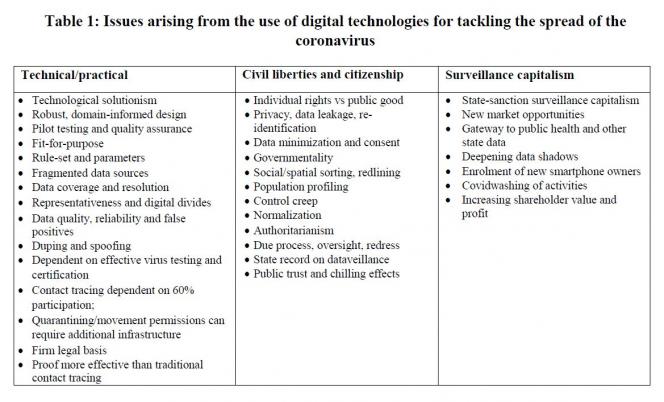
A new paper by MUSSI's Prof Rob Kitchin (Programmable City Working Paper 44) examines whether digital technologies will be effective in tackling the spread of the coronavirus, considers their potential negative costs vis-a-vis civil liberties, citizenship, and surveillance capitalism (see table below), and details what needs to happen.
Abstract
Digital technology solutions for contact tracing, quarantine enforcement (digital fences) and movement permission (digital leashes), and social distancing/movement monitoring have been proposed and rolled-out to aid the containment and delay phases of the coronavirus and mitigate against second and third waves of infections. In this essay, I examine numerous examples of deployed and planned technology solutions from around the world, assess their technical and practical feasibility and potential to make an impact, and explore the dangers of tech-led approaches vis-a-vis civil liberties, citizenship, and surveillance capitalism. I make the case that the proffered solutions for contact tracing and quarantining and movement permissions are unlikely to be effective and pose a number of troubling consequences, wherein the supposed benefits will not outweigh potential negative costs. If these concerns are to be ignored and the technologies deployed, I argue that they need to be accompanied by mass testing and certification, and require careful and transparent use for public health only, utilizing a privacy-by-design approach with an expiration date, proper oversight, due processes, and data minimization that forbids data sharing, repurposing and monetization.

Full paper available here - http://progcity.maynoothuniversity.ie/wp-content/uploads/2020/04/Digital-tech-spread-of-coronavirus-Rob-Kitchin-PC-WP44.pdf
